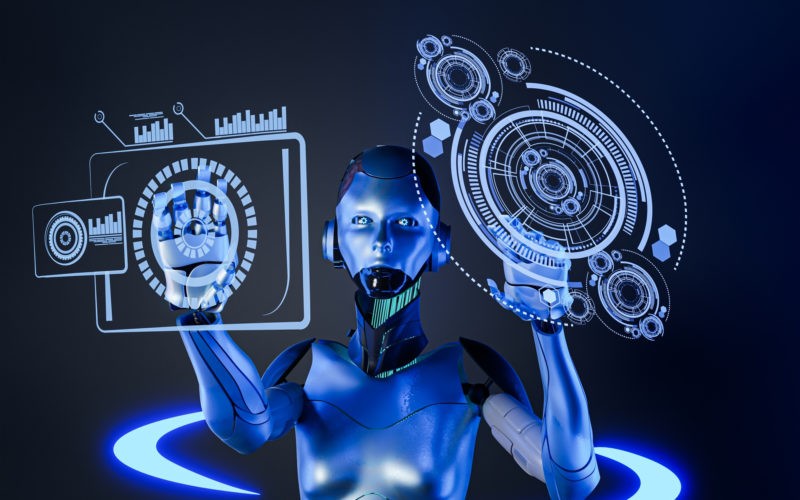Intelligent automation is an umbrella term covering the general use of automation technologies. Most people think of automation when they think of artificial intelligence, but there’s more to it than that. That’s just one type.
Whether you want to understand robotic process automation or process mining, this guide has you covered.
4 Different Types of Intelligent Automation
As you explore the complex world of intelligent automation, you’ll need to understand the difference between the various types. Each has different capabilities and functions, and which is best for you and your organization will vary based on your expected outcomes.
1. Artificial Intelligence
Artificial intelligence (AI) is software or applications capable of learning information and offering recommendations and solutions based on the information at hand. It’s become increasingly more popular with the advent of chatbots, which have helped transform customer service operations in many industries.
Where human labor was previously needed to answer every question, chatbots can offer basic support to your customers on a 24/7 basis. If they need additional support, the chatbot can escalate it further.
Generative AI is one of the latest breakthroughs in AI. It’s an offshoot of AI that can create original text, videos, images, and other types of content with simple prompts. The more you use it, the more the software will learn your needs and refine the algorithm to meet them.
2. Process Mining
Process mining is a type of intelligent automation that uses data to understand and improve processes. So, how does process mining work?
It takes the event logs from information systems and analyzes them to generate visual process models. These are based on the actual steps seen in the system event logs, and they will identify gaps, bottlenecks, or delays that hinder the optimal or desired workflow.
You’ll then make enhancements based on what you learned and monitor the changes to see if they had the desired impact. If not, you will continue to refine until you achieve your desired outcomes.
This type of intelligent automation can help you learn why processes aren’t working more quickly and make adjustments to get them where they need to be. It’s worth investing in if you want to enhance your productivity, but it can only take your business so far.
3. Robotic Process Automation
Robotic process automation (RPA) helps use technology to reduce the amount of manual work for a task. This can be through actual robots as you program them to pick bays in a factory or data entry tasks.
They are programmed to mirror human actions, like keystrokes, reading screens, and executing basic movements. Process intelligence can work with RPA to take other automation, like process mining, to the next level.
Not only will it identify ideal candidates for automation, but it can also help monitor their progress and report on how they are doing. Robotic process automation is great for simple, manual tasks.
If you need to do tasks that require more complex human-like thinking, you may need to invest in AI or another form of intelligent automation.
4. Machine Learning
Machine learning is a mixture of AI and computer science, and it’s intended to mimic how humans learn. Over time, machine learning improves its accuracy based on the data inputs.
Machine learning is primarily used in three use-case scenarios: when companies are looking to make predictions based on data, when they are trying to assess the accuracy of a particular function, or when they are trying to optimize a process.
Machine learning is only as good as the data that is put into it, so as it learns, you need to make sure that it is as clean and accurate as possible. There is a human element that impacts how the computer learns.
There are other subsets of intelligent automation that do not require as much of a human touch; however, there will always be a need for oversight as the algorithm can become corrupted by inputs if you are not careful.
What Intelligent Automation Is Right For You?
It’s critical that you evaluate what you are trying to accomplish before you decide which intelligent automation is right for you. Manual processes may be completed by RPA, but if you require any complex thinking, you may need to integrate a machine learning or AI solution.
Process mining is great when you are looking for breakdowns in the process itself, but it will require human intervention or a separate solution if you want to do anything to address the issue.
Intelligent automation can help you scale, so as you consider which to invest in, consider what works for you now, as well as where you hope to go in the future. Technology changes so rapidly, and you want an intelligent automation solution that can keep up with you.
Conclusion
As automation technology continues to evolve, understanding the various types of intelligent automation is essential for businesses aiming to stay competitive. From the precision of robotic process automation (RPA) to the predictive power of machine learning and the analytical depth of process mining, each form of intelligent automation offers unique benefits.












